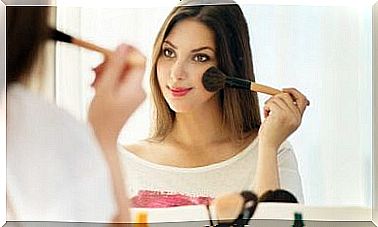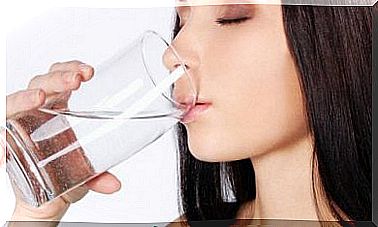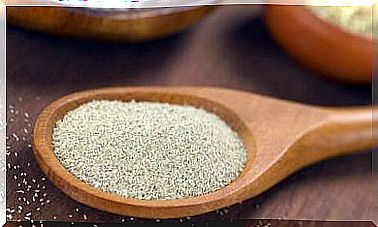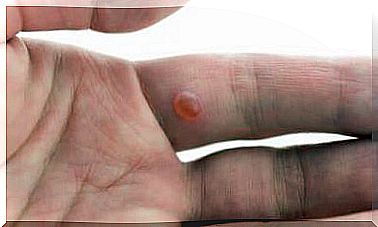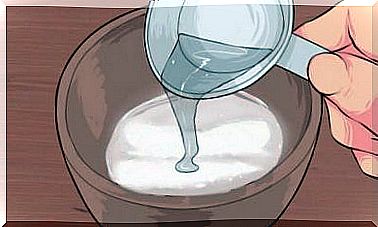How To Improve Skin During Menopause

Menopause is a stage of many changes in which a woman must take care of herself in several aspects, not only internal, but also external.
The skin is one of the areas that suffers most and weakens during the climacteric. Therefore, in this article we will tell you how to improve and hydrate it.
What happens to the skin during menopause?

A woman’s skin is about 25% thinner than a man’s at any age, but in the climacteric stage, this is accentuated.
Over time, the dermis ages and changes its main functions (regulating body temperature, defending against sunlight and germs, storing water and nutrients, etc.).
Although this depends on genetic heritage and lifestyle, in general, after the age of 50 we see the first signs of skin aging:
- dryness
- Flaccidity
- roughness
- wrinkles
We can also notice that the skin becomes thinner, has changes in pigmentation, benign formations and vascular dilations.
- The dermis is less hydrated and ultimately diminishes the ability to repair tissue or heal wounds.
- As it also has less collagen, the skin is less elastic.
- As the body produces less estrogen, the number of cells in charge of skin tone decreases, causing blemishes and warts.
- In the case of the skin on the hands and soles of the feet, it becomes thicker and has more expression lines.
Skin Care During Menopause
Hormonal changes can be regulated through medical treatment.
However, there are habits that a woman must change or improve if she wants to have a more radiant and fresher skin during the climacteric stage.
Pay attention to the following advice:
protect yourself from the sun
Although UV rays can be harmful at any age, during menopause the skin does not have the ability to deal with them. We must not forget to use a high protection factor, especially at midday and in summer.
On the other hand, exposure for 15 minutes a day is recommended in order to adequately synthesize vitamin D (which improves bone health by allowing calcium absorption, for example).
If your skin is very white, it is best to use a sunscreen (even when it is cloudy or cold).
Hydration
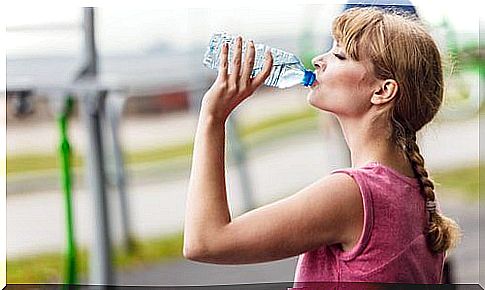
It is essential to consume between 2 to 3 liters of water daily so that hydration starts from the inside.
If you don’t like or get bored with drinking water, you can substitute natural juices, fruit shakes or herbal teas. Coffee, soft drinks and alcohol are not included, as they have the opposite effect.
Even so, we advise using special moisturizing creams for the face and body. In stores, there are many products made for this stage of women’s lives. Apply in the morning or at night.
To clean
Proper skin hygiene is essential for it to look younger and healthier.
- You should wash your face with neutral soaps that keep the pH always alkaline and do not alter the skin’s hydrolipidic barrier.
- When finished, use emulsions to leave a protective film. Dry your face without rubbing to avoid irritation.
nurture
In addition to using nourishing skin creams, we recommend that you maintain a balanced diet full of vitamins, minerals and antioxidants.
- Fruits and vegetables will be your main allies, as they are not only natural, but also full of water and nutrients.
- Discard fats, flours and sugars. Say no to processed food and fast food , and choose more homemade, healthy and seasonal ingredients.
Thus, you will be able to offer the body everything it needs to protect itself from free radicals that damage the skin’s health.
Exfoliate
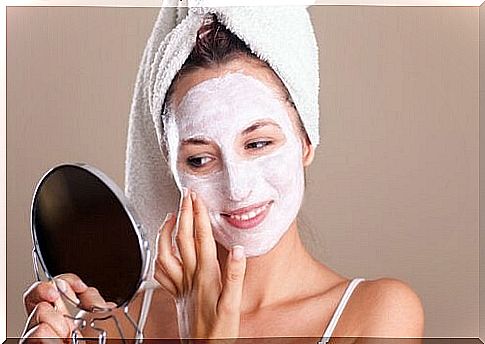
It is advisable, once a week, to carry out a deep exfoliation in order to eliminate impurities and, at the same time, to stimulate cell renewal.
You can use homemade masks that contain, for example, sugar or honey. Thus, it will delay the effects of time on the face or neck.
doing exercises
Physical activity is very important to keep your skin radiant at any stage of life, but especially during menopause.
- Exercising is essential for removing toxins through the pores and for increasing dermal elasticity.
- As if that wasn’t enough, sport prevents osteoporosis, improves heart health, reduces stress and gives vitality.
Therefore, it is essential to carry out some activity, even if it is quiet and relaxed. If you’ve never exercised, start with yoga, Pilates, or swimming.
Avoid unhealthy habits
Within this group, we can mention cigarettes, stress or alcohol. All these elements worsen our health, and this affects the condition of the skin.
- For example, when smoking, the body not only absorbs harmful toxins, but the skin is also unable to regenerate or stay hydrated.
- Stress goes hand in hand with other problems, such as insomnia, which causes dark circles and blemishes on the skin.
- Alcohol has similar negative effects to cigarettes, as it contains many toxins that cannot be easily eliminated.
Main image courtesy of © wikiHow.com
